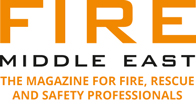12 Oct ASFP launches new websites to improve global access to fire protection support
The Association for Specialist Fire Protection (ASFP) has launched new websites to support fire safety professionals around the world. The new websites welcome visitors in their own language, offer them guidance via ASFP resources and information on areas including membership, training and technical guidance.
The aim of the websites is to improve global access to fire protection support and to help to improve understanding of passive fire protection throughout the world.
New ASFP websites are planned for Qatar, Singapore, Australia, India and South Korea, whilst the sites for Hong Kong, the United Arab Emirates, France and Spain are already live:
- Hong Kong: https://asfp.hk/
- United Arab Emirates: https://asfp.ae/
- France: https://theasfp.fr/
- Spain: https://asfp.es/
The ASFP is also making its popular online training courses available in a new range of languages, in a bid to open up accessibility. The Level 2 and Level 3 Foundation courses in Passive Fire Protection, delivered via the e-Learning platform, are now available in both French and Spanish.
Commenting on this latest development, ASFP CEO Steve Davies explained: “The ASFP has witnessed a growing demand for passive fire protection information, guidance and training from across the world. By developing new websites and making training available to international audiences in their own languages, we hope to make our expert knowledge and experience more widely accessible.”
Davies added: “Such a move can only lead to a greater understanding of the vital role played by passive fire protection products and systems and improve the quality of fire safety provision within the global built environment.”
The ASFP was formed back in 1975 in recognition of a need to bring together passive fire protection manufacturers, contractors and testing/certification bodies in order to develop and encourage specific guidance on essential standards in the passive fire protection arena.
The ASFP serves and represents the needs of its members and the wider passive fire protection industry by raising standards and competence through training, testing, certification and the quality of delivered installations and maintenance.






